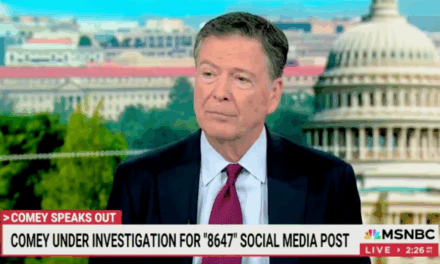The highly regarded news program ’60 Minutes’ finds itself in the spotlight following a significant lawsuit launched by former President Donald Trump against Paramount Global. The lawsuit centers around an interview featuring Vice President Kamala Harris that Trump claims has led to serious reputational harm and was misinterpreted by the public. In the face of these claims, the staff of ’60 Minutes’ have come forward to defend the integrity and accuracy of their journalistic practices, particularly regarding Harris’s segment.
Since its inception in 1968, ’60 Minutes’ has been celebrated for its investigative journalism and candid interviews with key figures in politics, business, and culture. The show’s format, which allows for in-depth discussions, has won numerous awards and a loyal audience. The episode featuring Harris was seen as part of this tradition, but has now become embroiled in legal disputes.
Trump’s lawsuit against Paramount is based on his allegations that the interview not only misrepresented his comments but also contributed to the erosion of his public image among segments of the population. The former president’s attorneys assert that the way the interview was conducted and edited led to a completely unbalanced portrayal, which they argue is actionable under defamation law.
In light of these claims, ’60 Minutes’ staff members have released a statement that counters Trump’s allegations, emphasizing the editorial policies and standards of journalistic ethics they adhere to. They argue that interviews produced by the show are carefully vetted for accuracy and fairness, ensuring that multiple viewpoints are represented.
The interview in question took place during a pivotal moment in Harris’s political career, providing insights into her views on critical national issues including immigration, healthcare, and economic recovery following the COVID-19 pandemic. Segment producers noted that the intention was to offer viewers a comprehensive look at Harris’s perspective and policies, particularly as they relate to the Biden administration’s agenda.
Despite criticisms received, particularly from Trump and his supporters, the staff expressed their commitment to the principles of journalism that advocates for transparency and accountability, often highlighting the responsibility of the media to provide information that empowers the public. They also pointed out the legal responsibilities associated with free speech and journalistic expression, reinforcing the notion that the media serves as a necessary check on political power.
As the lawsuit progresses, broader discussions surrounding media freedom, accountability, and the delineation between opinion and factual reporting have emerged. Legal experts suggest that this could serve as a landmark case in determining how far public figures can go in combating unfavorable media coverage and whether such lawsuits can deter investigative journalism in the future.
While the current landscape suggests an increasing tension between media entities and high-profile public figures, supporters of ’60 Minutes’ assert that the program’s storied history of investigative reporting strengthens its position. They argue it is crucial for media organizations to push back against what they see as attempts to silence and intimidate them by those in power.
The implications of Trump’s lawsuit reach far beyond just ’60 Minutes’, as it prompts a reevaluation of how media outlets conduct interviews and report on politically sensitive subjects. Content creators, journalists, and legal analysts are all closely monitoring the developments, recognizing the potential ramifications not only for ’60 Minutes’ but for the broader media landscape.
Trump’s legal team has already indicated that they may seek punitive damages, which could further amplify the stakes of this case. The former president, known for frequently challenging media reports that do not align with his narrative, may be using this lawsuit as a way to galvanize his base, positing himself as a victim of a biased media landscape that seeks to discredit him.
In response, advocates for a free press argue that journalism plays an essential role in democracy, empowering citizens to hold their leaders accountable. They warn that allowing lawsuits like Trump’s to succeed could set a dangerous precedent, ultimately threatening the very foundation of investigative reporting that seeks to uncover the truth, regardless of political implications.
As the situation continues to evolve, ’60 Minutes’ stands firm in its commitment to journalistic integrity. The staff is hopeful that the rigorous processes they employ in their reporting will stand up to scrutiny and that the true role of the press will be upheld in courts of law and public opinion alike.
Legal experts anticipate a drawn-out process filled with extensive discovery, potentially leading to further revelations and detailed analyses of the editorial practices present at ’60 Minutes’. This lawsuit can also foster discussions among journalists about preemptively addressing how they deal with backlash from powerful figures, setting ethical boundaries while ensuring comprehensive reporting.
For its part, Paramount Global has stated that they will vigorously defend the suit and their network’s commitment to high-quality journalism. The company emphasizes that the legal challenge does not diminish their dedication to providing a platform for in-depth reporting that often includes heated political debates and controversies. Paramount’s response reflects a broader strategy among media corporations, which are increasingly finding themselves on the receiving end of legal challenges from various sources.
While the outcome of this lawsuit remains uncertain, it has undoubtedly reignited debates about how the media interacts with power and the risks that come with reporting in a politically charged environment. The dynamics of celebrity, politics, and journalistic ethics are at the forefront, and the resolution of this case may pave the way for future actions taken against the media.
In conclusion, as ’60 Minutes’ navigates the complexities of Donald Trump’s lawsuit, it faces both a battle for its reputation and a broader struggle to defend the principles of journalistic integrity. The implications of the case could shape the relationship between the media and political figures for years to come, highlighting the crucial need for transparency and accountability in the reporting process. As the legal process unfolds, audiences will be closely monitoring the response of the media and the ramifications this case presents for the wider landscape of political reporting.
































